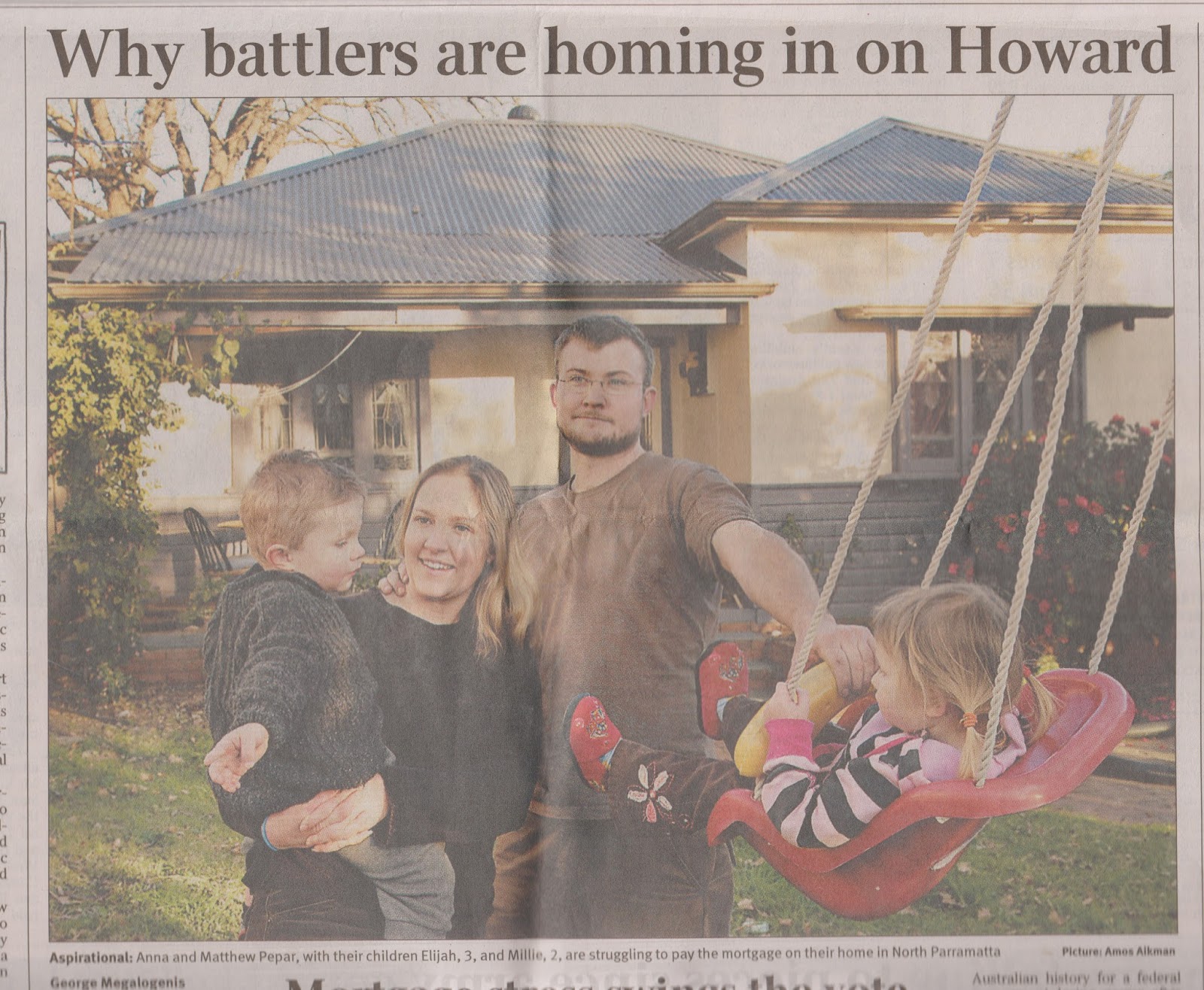Labor paints a brighter childcare picture: [1 All-round Country Edition]
Stapleton, John. The Australian [Canberra, A.C.T] 19 July 2007: 4.
Show highlighting
Abstract
"Over the last year, 11 per cent less people are now engaged in household savings. In other words, people are having to dip into their savings or go into debt in order to make their ends meet."
He said not only were one in four families now experiencing mortgage stress, defined as spending more than a third of their income on housing, but this was being compounded by a 50 per cent increase in the price of petrol over the past five years. "That is driving many family budgets into a state of stress," he said.
"When you look at the number of working families now using childcare, because one parent or the other needs to join the other parent in the workplace in order to pay off the mortgage and meet all the other bills when it comes to the household, there is a real challenge."
IT'S a name Kevin Rudd just can't escape.
Even among a bunch of children, his rival's name just keeps popping up on his radar.
The Opposition Leader visited the Rainbow Street childcare centre in Randwick in Sydney yesterday and mixed with the kids, writing out their names on a card.
Top of the list was "Johnny", followed by a nice smiley face.
After meeting the children Mr Rudd announced that a federal Labor government would fund the construction of 260 childcare centres across Australia and pay the TAFE fees of people studying childcare.
He said the measures would help families struggling with the cost of living, by increasing competition between childcare centres to drive down fees.
The new centres would be built, where possible, next to schools to make it easier for parents to drop off their children, he said.
During his visit, Mr Rudd was armed with research that the ALP claims shows a rising cost of living is putting pressure on Australian families.
He said statistics released this week by the Melbourne Institute made sobering reading, showing many Australian families drowning in debt and living on credit.
"The data is pretty graphic when you look at it," he said.
"Over the last year, 11 per cent less people are now engaged in household savings. In other words, people are having to dip into their savings or go into debt in order to make their ends meet."
He said not only were one in four families now experiencing mortgage stress, defined as spending more than a third of their income on housing, but this was being compounded by a 50 per cent increase in the price of petrol over the past five years. "That is driving many family budgets into a state of stress," he said.
"Add to that the rising price of groceries and you have real problems when it comes to balancing the family budget."
Mr Rudd said one of the greatest costs for families with young children was childcare, which was increasing by 12 per cent a year.
He said many working families were spending $250 a week per child for community centres, and $400 a week or more per child in private centres.
He called for a national debate on how to reduce the cost.
"My challenge to Mr Howard is this: when it comes to cost-of- living pressures for working families, is he really saying there is not a struggle?
"When you look at the number of working families now using childcare, because one parent or the other needs to join the other parent in the workplace in order to pay off the mortgage and meet all the other bills when it comes to the household, there is a real challenge."


